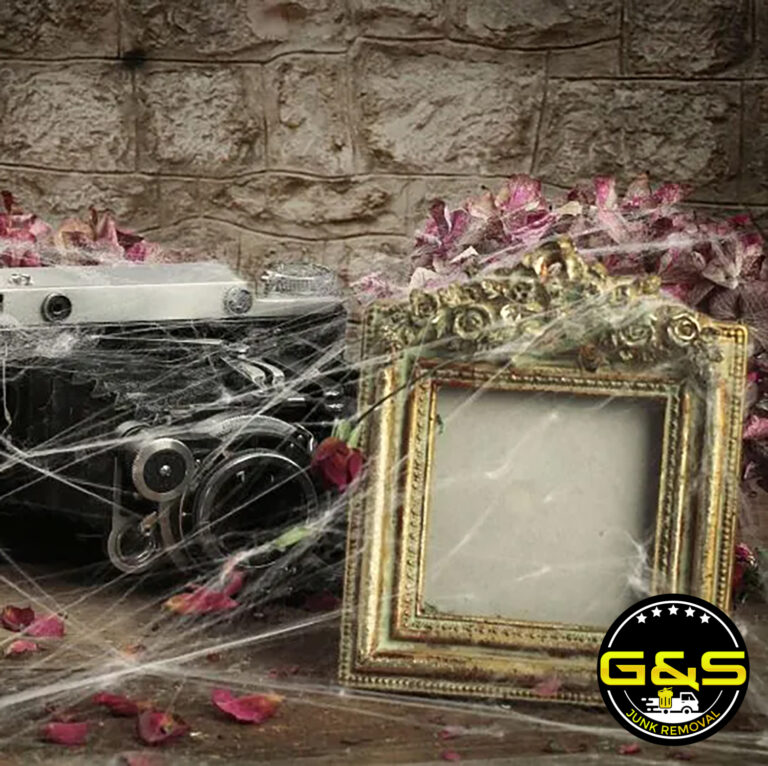November 8, 2024
It’s not uncommon for people to find themselves overwhelmed by the amount of clutter in their homes. About a quarter of Americans openly admit to dealing with this issue, much of which is tied to sentimental value. The emotional attachments we form with certain objects can make it incredibly difficult to part with them. However, emotional decluttering offers a chance to sift through these possessions, assessing what truly enriches our lives and what might just be weighing us down.
When our belongings are tied to personal histories, memories, and emotions, decluttering becomes far more than a mere physical task. It evolves into a deeply personal journey, one that allows us to reclaim space in both our homes and our minds. These objects—while cherished—can sometimes accumulate to the point where they feel like more of a burden than a comfort. Letting go of them can create a more inviting and refreshing environment for living.
What Defines Sentimental Clutter?
Every home has its share of practical items, like kitchen tools, clothing, and other everyday necessities that serve clear purposes. But then there are the sentimental items—objects that hold emotional value but no longer serve a practical function. Think of old letters, birthday cards, or childhood toys. While these items once carried significant meaning, they can quickly accumulate into an unmanageable mess, taking up valuable space and causing unnecessary stress.
In some cases, people might mistakenly confuse their emotional attachment to an item with a need for its utility. An old, broken appliance could be kept because of the thought that it might be repaired someday, or a stack of magazines might sit untouched because there’s a desire to reread a specific article. This can escalate into an inability to part with anything at all, a tendency known as hoarding. In these situations, the emotional attachment to possessions takes a serious toll on both physical space and mental well-being.

How Decluttering Improves Mental Health
Living among clutter can have far-reaching effects on emotional and mental health. The more we hold on to things that trigger nostalgia or emotional responses, the more clutter builds up—both physically and mentally. This clutter can invade our minds, creating feelings of stress, anxiety, and even depression. It becomes harder to relax, focus, or find motivation when surrounded by the weight of accumulated items. By clearing out these emotional anchors, we open up space for mental clarity, focus, and peace.
Emotional decluttering helps reorganize our mental space just as much as it does our physical space. It enables us to create an environment where we can truly unwind, focus, and feel more in control of our surroundings.
Steps for Navigating Emotional Decluttering
Embrace Your Emotions
It’s normal to feel attached to certain objects—after all, they often represent milestones, memories, and people in our lives. Acknowledging these emotions is an essential first step in the decluttering process. Each item tells a story, but it’s important to realize that memories live within us, not in the things we possess. Understanding this truth is liberating and allows you to view objects with more perspective.
Take It One Step at a Time
Emotional decluttering should never be rushed. Take your time with the process. Start by dealing with less emotionally charged items and gradually work your way toward the more difficult decisions. Small, incremental steps will help you avoid feeling overwhelmed.
Digitalize Your Memories
In today’s digital age, there’s no need to hold on to every physical memory. Consider scanning old photos, letters, or cards to preserve their essence without taking up physical space. Digital copies allow you to revisit your memories whenever you wish, without the clutter.
Give Back by Gifting or Donating
Letting go of sentimental items can become easier when you know they’re going to someone who will appreciate them. If there are objects you no longer need, consider gifting them to friends or donating them to charities. The thought of passing them along to a new home can help release their hold on you.
Seek Professional Support
In some cases, emotional decluttering might feel too overwhelming to tackle alone. Professional junk removal services specialize in helping individuals navigate the emotional challenges that come with parting ways with sentimental possessions. These experts bring understanding and compassion to the process, helping clients make difficult decisions while ensuring that memories are respected. Their support can be invaluable, especially when dealing with hoarding situations or large-scale decluttering efforts.
The Truth About Decluttering: Memories Stay, Clutter Goes
One of the most common misconceptions about decluttering is that it involves discarding memories. In reality, letting go of items frees us from being tethered to the past. Decluttering doesn’t erase memories; it helps us honor them without being physically bound to the objects themselves. The process makes room for new experiences, allowing us to create a more open and inviting space for fresh memories to form.
Emotional decluttering is about more than tidying up—it’s about emotional freedom. By releasing the hold that sentimental clutter has on us, we create space to grow, to heal, and to thrive in an environment that truly reflects who we are today.
